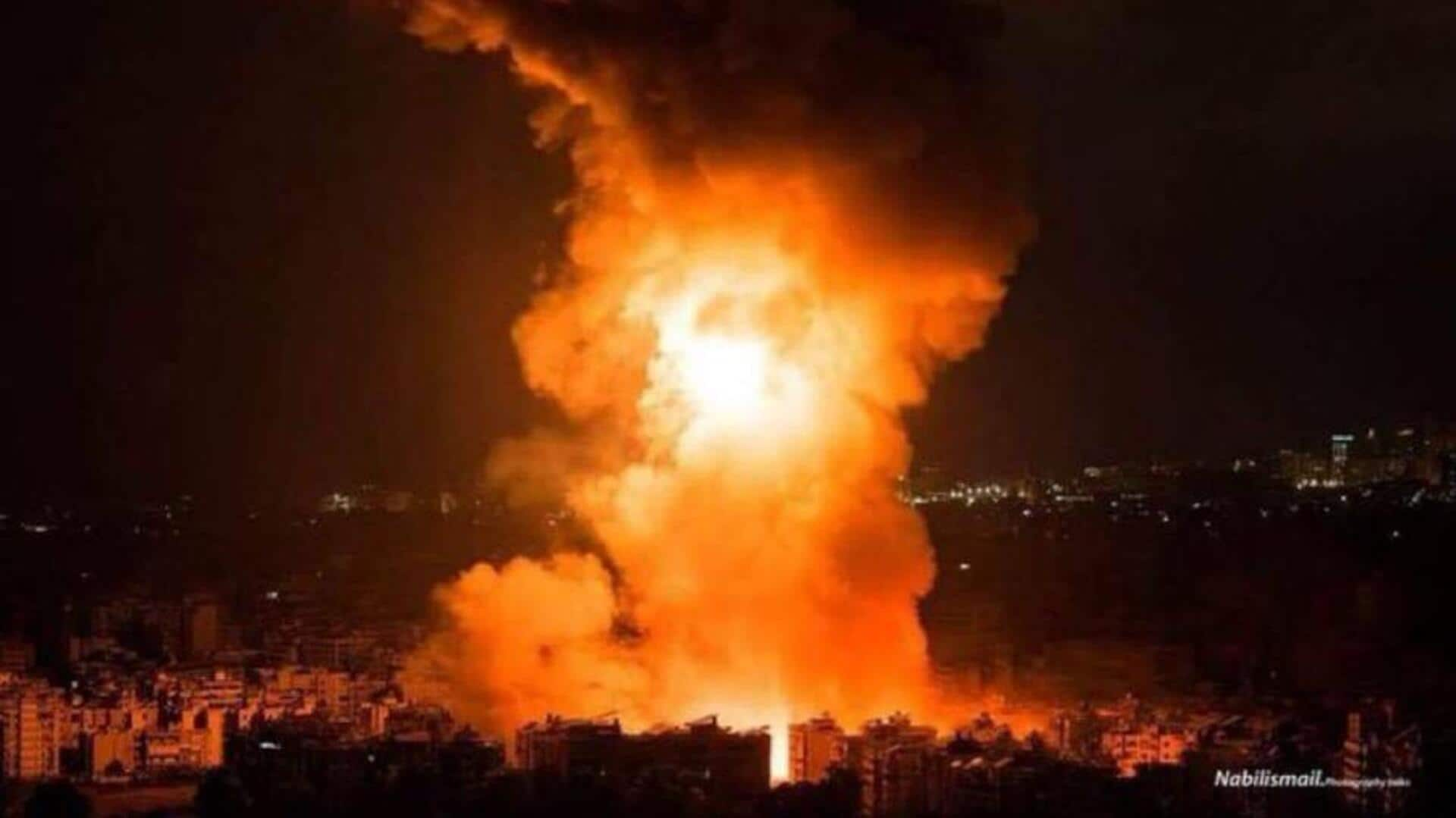
Israel strikes Iran: How did the West, Arab countries react
What's the story
The United States and the United Kingdom have urged Iran to refrain from retaliating after Israel's airstrikes on Iranian military targets. At least two Iranian soldiers were reportedly killed in the overnight strikes. The strikes were in retaliation to Iran's missile barrage on Israel earlier this month. "We urge Iran to cease its attacks on Israel so that this cycle of fighting can end without further escalation," US National Security Council spokesman Sean Savett told reporters.
Diplomatic stance
US supports Israel's 'targeted and proportional' response
The US clarified that it did not participate in the operation but supported Israel's "targeted and proportional" response. President Joe Biden had previously advised Israeli Prime Minister Benjamin Netanyahu to design a response that would deter further attacks while minimizing civilian harm. Similarly, British Prime Minister Keir Starmer urged restraint, stating that "Iran should not respond."
Defensive measures
France urges restraint, US deploys missile defense
France also issued a neutral statement, urging all parties to refrain from actions that could exacerbate regional tensions. Meanwhile, the US has deployed THAAD missile defense batteries to Israel and is ready to defend against any Iranian attack. Arab and Muslim nations, on the other hand, condemned the Israeli strikes, warning of regional instability.
Regional reaction
Arab nations express concern over Israeli strikes
Egypt voiced concern over the escalation, while Jordan termed the strikes a violation of international law. Saudi Arabia condemned the strikes and warned against further expansion of the conflict. The United Arab Emirates (UAE) expressed deep concern over the impact of the escalation on regional security, while Iran's ally Qatar condemned the airstrikes and called for dialogue to prevent instability.